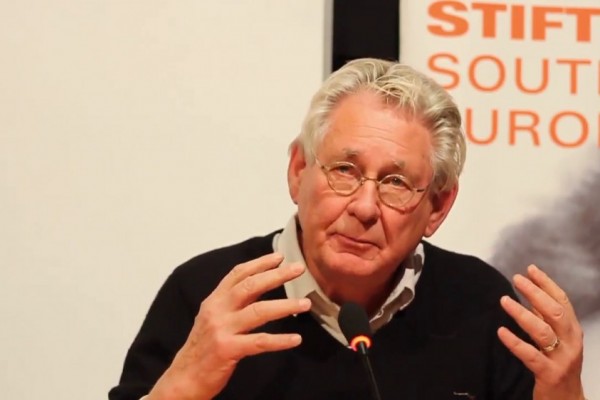Canadian labour in crisis: the way forward

Photo supplied by Roger Annis
Workers across Canada, most of whom are non-unionized, will benefit from the success of the Fight for 15 & Fairness campaign that swept the province of Ontario recently. The campaign successfully pressured the Liberal government to increase the minimum wage to $14 in 2018 and $15 in 2019, among other substantial changes to minimum labour standards. To recoup their “losses,” employers such as Tim Hortons imposed rollbacks on workers and exposed to what extent they will go to exploit the most precarious and low-paid workers in this country.
At a critical moment when Fight for 15 & Fairness organizers needed trade union unity to boldly and militantly carry out the campaign’s next steps, we were embroiled in a crisis that started at the top of the labour hierarchy. A power struggle among union leaders had reached its peak when Unifor National Executive Board (NEB) disaffiliated from the CLC on January 16, 2018, to have a free hand at raiding UNITE HERE Local 75 and its 8,000 members who work in the hospitality sector in the Greater Toronto Area. This action reverberated throughout the entire Canadian labour movement, from top to bottom.
Unity does not come at any cost and trade unions should have the option of withdrawing from a central labour body on principled, political grounds, just as workers have a right to change their union if they feel their interests are not being served. Critical issues and principled class politics can legitimately divide central labour bodies and may even lead to the creation of several competing labour centres, as is the case in most parts of the world, where there is legitimate political basis for such splits.
In this case, the expressed reasons for Unifor’s disaffiliation from the CLC are neither principled nor warranted. They do however expose some longstanding problems, including:
- Contrary to popular belief, working class unity and solidarity is not the purpose of the CLC at this moment in our history. For CLC-affiliated unions today, affiliation is like taking out an anti-raiding insurance policy. Workers can freely change unions through a CLC process outlined in Article 4 of the Constitution, but when it became a barrier to Unifor’s unilateral actions to organize another union’s members, they deemed it broken.
- Democracy is a term that is loosely defined, often used when it is convenient, and not necessarily a practice accorded the respect it deserves. Unifor contravened its own constitution and violated its own member’s democratic rights, while claiming to be defending the democratic rights of another union.
- The international solidarity required among all working people and their organized forces is often applied opportunistically and rhetorically because it makes us feel good. Unifor used narrownationalist jingoism and rhetoric against American- based unions as a ruse to enable raiding. Unions should be judged on their demonstrated commitment to a militant, democratic, class-based fightback against neo-liberalism in the streets and at the bargaining table, rather than on the location of their headquarters
When organizations such as unions, which workers built to advance their interests, become more important than the workers themselves, and when the structures and rules that govern these organizations come to define workers’ interests, we have lost our way.
Unifor is the focus here, but its actions are emblematic of the character of the entire trade union movement today. How do we find our way out of this mess?
In this instance, we need unity at the grassroots. It’s not enough however, to simply call for allowing Unifor locals to remain in the local labour councils and federations of labour. We should go farther and ensure we kick the doors wide open for all workers, unionized or not. If we are serious about building a class-based opposition to neoliberal austerity, groups that represent non-unionized workers — migrant workers’ groups, students, immigrant community organizations addressing workers’ issues and the unemployed, should fully participate in labour councils across the country.
Worker unity from below must be done based on class solidarity and should welcome into the fold all those who share that class interest. The basis of unity for labour bodies should be political not organizational. The current moment of struggle requires political unity of the labour movement as representative of the working class, not the interests of a select few at the top.
Hassan Husseini is a negotiator with the Public Service Alliance of Canada and a member of Unifor. He also teaches Political Science at Carleton University and is a member of CUPE 4600 (for identification purposes only).
This article appeared in the Spring 2018 issue of Canadian Dimension (Whiteness & Racism).










